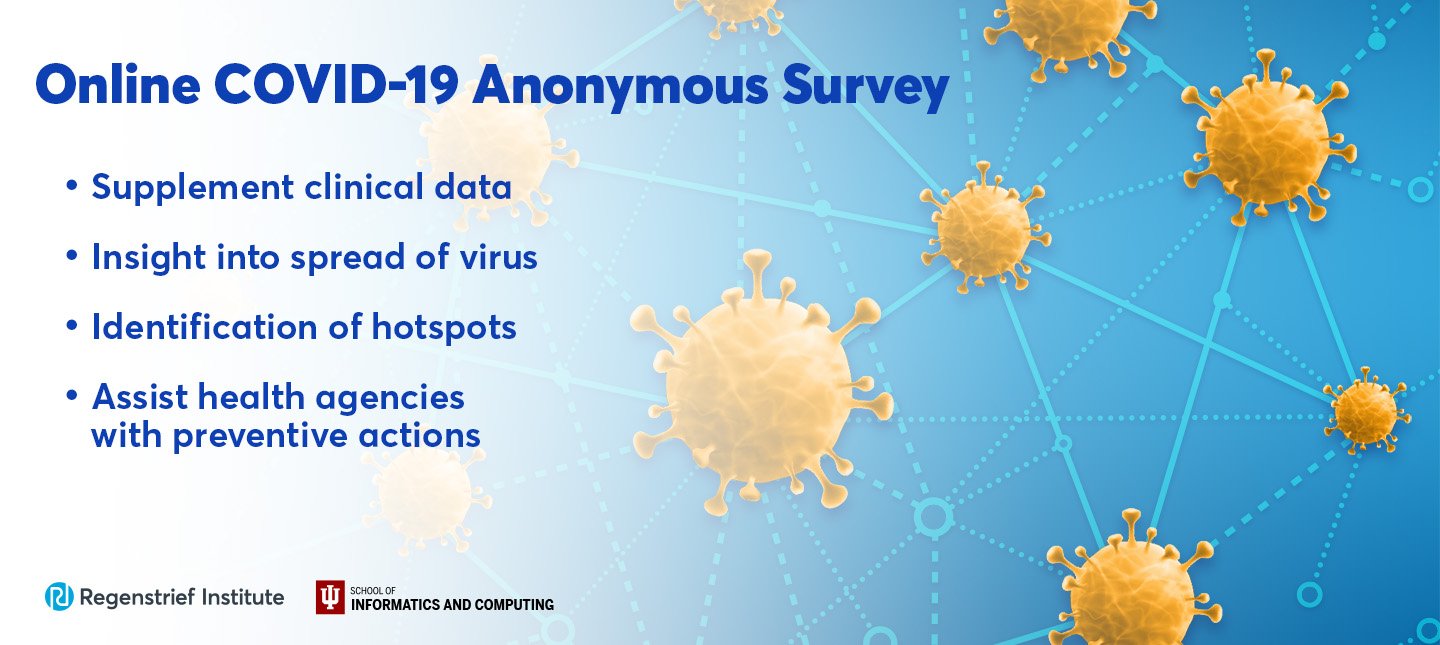Findings to fill information gaps, gauge prevalence and support public health decisions
The Regenstrief Institute and Indiana University are launching a survey to conduct research about COVID-19 symptoms. The anonymous survey data generated by the project could be used to help state, federal and international health agencies monitor trends and anticipate outbreaks.
There is much that scientists and public health officials don’t know about this virus. The goal of this pilot project is to fill in the gaps and give a better understanding of COVID-19 prevalence.
In order to get the survey in front of as many people as possible, it will be shared via Microsoft News (MSN) to visitors to the site who will be invited to take part in the pilot round of the study. Individuals who choose to participate will be asked to complete an anonymous seven-question survey, which includes requests about symptoms, travel patterns and general location. The survey does not collect the participants’ personal information.
Regenstrief and IU researchers will analyze the aggregated data and publicly publish the results.
“Given limited testing in multiple parts of the world, we have limited knowledge about the spread of COVID-19. Information from this survey will supplement available clinical data, providing a wider view of the outbreak situation,” said Brian Dixon, PhD, lead Regenstrief researcher on this project and also Regenstrief and Indiana University Richard M. Fairbanks School of Public Health at IUPUI director of public health informatics. “The information can help epidemiologists understand how the virus is spreading and identify hotspots, enabling leaders to take preventive actions. This novel data gathering method will add another tool to our arsenal as we work to contain the virus and protect the health of people around the world.”
The survey will first be deployed in the United States. Development is underway for distribution to 15 additional markets globally.
“Given the rapidly evolving nature of this pandemic, understanding characteristic symptoms and prevalence is essential to developing effective responses to this virus,” said Shaun Grannis, M.D., Regenstrief vice president for data and analytics and professor of family medicine at Indiana University School of Medicine. “Being able to gather this additional data will provide valuable real-time insights across the community extending beyond the healthcare system.”
The information and data-gathering techniques could be used in broader research efforts to understand COVID-19 as well as track future disease outbreaks.
In addition to Drs. Dixon and Grannis, researchers involved include Mary L. Gray, PhD, a faculty member of the School of Informatics, Computing, and Engineering at Indiana University and a Senior Principal Researcher at Microsoft Research; and Fred Cate, J.D., vice president for research at IU.










